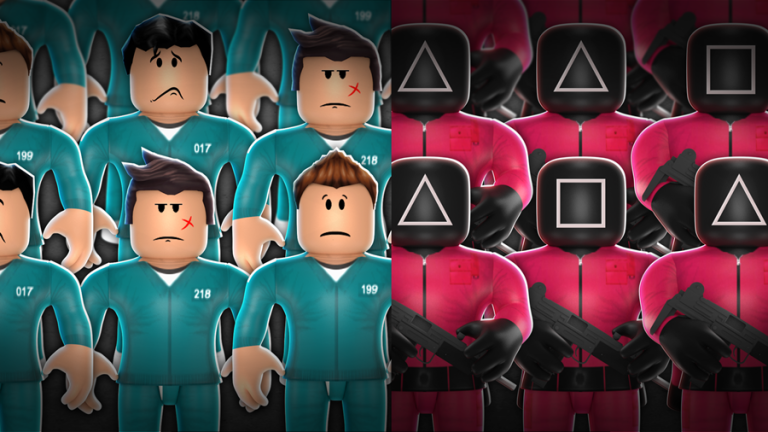Squid Game: Not quite child’s play…
If you have yet to hear about Squid Game, trust us, you are about to. Chances are if you are a parent, it might very well be your child who brings it up in conversation. Squid Game is Netflix’s latest global runaway sensation. At the time of writing, it is the most watched show on Netflix in 90 countries, including Ireland. But it would seem its popularity isn’t just reserved for our TV screens, as it has found its way into many aspects of social media from TikTok to YouTube, and gaming to memes. You may even have already experienced lots of Squid Game-inspired Halloween costumes arriving on your doorstep this year.
To try and sum it up in one sentence, Squid Game is a South Korean dystopian survival series which is certainly not for the faint-hearted viewer. It sees 456 players who are very deep in financial debt put their lives on the line to play a series of children’s games for a chance to win financial freedom. (The series is inspired by the very real debt crisis is South Korea. For more on that check out The Guardian’s excellent podcast episode.)
Sounds harmless enough, right? Most definitely not! What ensues is violence, torture, and executions of such a graphic nature that many might find it just too hard to stomach. But whether the adults in the house choose to watch these harrowing scenes or not, it is certainly not suitable for children or young teens, with Common Sense Media giving it a 16+ rating and warning parents that the level of violence is ‘extremely intense’.
How does my child know about Squid Game?
So, you might be thinking at this point, ‘I have parental controls set up on Netflix and I keep a close eye on what my child is watching. There is no chance they even know what Squid Game is about.’ Nonetheless, like most hugely popular trends, the conversations about these things largely happen online. You may be extremely diligent about not allowing your child to view this type of content at home, but they could still most likely tell you the main plot twists and scenes from Squid Game which they have garnered from the online world. This might be while gaming with friends, watching TikToks or following their favourite YouTubers. Not to mention all the details they might hear or even see from friends with access to their own smartphones and devices while not under your watchful eye.

This very thought-provoking article links to many examples of the show’s pervasive presence within children’s digital cultures. This includes Squid Game based viral content and challenges emerging on TikTok and YouTube, or Squid Game-themed gameplay videos from Roblox. Our CEO Alex Cooney gave her own thoughts on this recently in the Irish Mirror. That just highlights the huge level of buzz around this TV show now. And like most things in popular culture, while that buzz remains, it will seep into every corner of the online world too.
How can I talk to my child about violent or upsetting content?
So where does that leave anxious parents who are concerned about their children accessing inappropriate content? It is hard not to feel overwhelmed when trends like this emerge. Our young ones are growing up in a digital world where content can often come crashing in whether they are ready for it or not. We all know that feeling of seeing something we really wish we hadn’t. It can stay with us for days, affecting our sleep, our mood and our general wellbeing while we try to make sense of it. If that happens to a child, they most likely have not yet developed the skills to fully make sense of and process what they see and that’s when they need to talk it out more than ever.
In this article by www.digiisocial.com there are some really great ideas for conversation starters with your child about viewing age-inappropriate content like Squid Game. It is easy to forget sometimes that children need to learn a highly polished skillset to not only survive but to thrive in the online space and part of parenting in the digital age is to help your child develop this skillset.
Here are some steps you can take to help your child deal with age in-appropriate content:
- Firstly, make sure you have provided your child with the safest and most positive viewing experiences possible when on devices in the home. Make best use of parental controls and explain to your child why they are in place. Explain the benefits they provide in avoiding seeing something which might upset or worry them. Check in with your child often and be aware of the kind of thing they like to watch and do online.
- Discuss age restrictions and viewer warnings which your child may encounter online, the purpose of which your child may not yet fully grasp. PEGI is a fantastic resource to find out about games. Common Sense Media is a jam-packed resource for everything else from movies to TV shows.
- Have open and honest conversations about the type of inappropriate content you have concerns about. Try not to get into the specifics of demonising certain shows, games or platforms, but instead focus on explaining why you have these concerns.
- Encourage your child to work with you to come up with suggestions and boundaries that might need to be put in place to avoid seeing such content. This will be especially important for early-stage teens who need to feel included in any decisions around what they can view.
- Your child needs to know that if they do see something which has upset them (whether intentional or not) that they can talk to you without fear of judgement or disgust. Try to stay calm and not react with an instant reprimand or the dreaded ‘online ban’. Hear your child out and allow them time to work through whatever worries and fears this might have brought up for them.
- It might be obvious to us as adults that something like Squid Game is fictional content and that we are watching actors on screen ‘pretending’ to die or be injured. To a younger child however this might not be apparent at all. Have a conversation about reality vs fiction and make sure they understand the difference.
- If you are extremely concerned about the impact exposure to inappropriate content may have had on your child’s emotional state and behaviour do not be afraid to seek professional guidance to help you and your child work through this situation.
www.digiisocial.com sums it up best when they sign off their article by saying…
‘Squid Game is just another – in a long line of what have been and will be – a threat to the sacredness of our children’s childhood innocence. Protect with love and controls, talk early and often, and always, always teach the skills needed to cope and seek help.’
Soon enough it may be ‘Game Over’ for the ominous Squid, as the next viral phenomenon emerges. Something new will start trending in its place and that something new may also cause us as parents many a sleepless night. However, hopefully one constant will remain – that line of communication you have built with your child will remain open and as strong as ever. It will just be the next big thing you will need to have a good chat about.
Posted on:
Oct 28, 2021

Fiona
Fiona has 20 years’ experience in the Media and Communications sector. During this time, she has seen first-hand the massive shifts digital technologies have brought about in how content is both delivered and consumed by audiences, especially the younger age groups. Fiona has a particular interest in digital wellbeing and the impact of online interactions on our young people’s mental and emotional health. As a mother to three young children, she understands how extremely challenging it can be to parent in a digital age. However, she feels passionately that the most powerful tool parents, educators, and children can be armed with is knowledge. With knowledge comes empowerment. She is delighted to help deliver this knowledge in a very engaging way as a part of the team at CyberSafeKids.